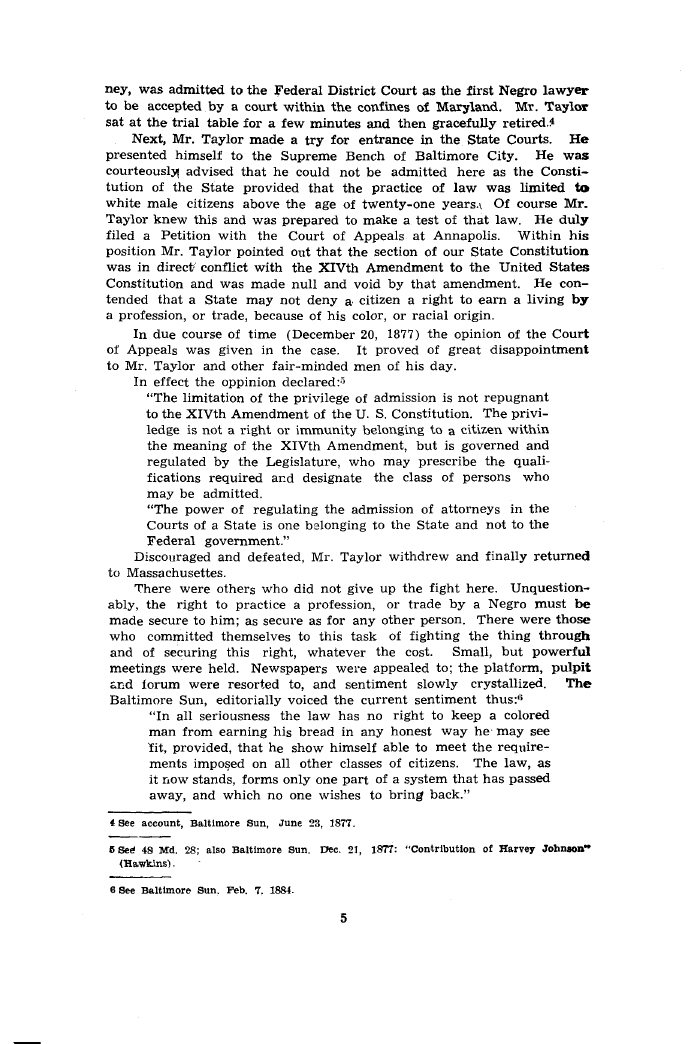|
ney, was admitted to the Federal District Court as the first Negro lawyer to be accepted by a court within the confines ot Maryland. Mr. Taylor sat at the trial table for a few minutes and then gracefully retired.4
Next, Mr. Taylor made a try for entrance in the State Courts. He presented himself to the Supreme Bench of Baltimore City. He was courteously advised that he could not be admitted here as the Consti-tution of the State provided that the practice of law was limited to white male citizens above the age of twenty-one years.Of course Mr. Taylor knew this and was prepared to make a test of that law. He duly filed a Petition with the Court of Appeals at Annapolis. Within his position Mr. Taylor pointed out that the section of our State Constitution was in direct conflict with the XIVth Amendment to the United States Constitution and was made null and void by that amendment. He con-tended that a State may not deny a citizen a right to earn a living by a profession, or trade, because of his color, or racial origin.
In due course of time (December 20, 1877) the opinion of the Court of Appeals was given in the case. It proved of great disappointment to Mr. Taylor and other fair-minded men of his day. In effect the oppinion declared:5
"The limitation of the privilege of admission is not repugnant to the XlVth Amendment of the U. S. Constitution. The privi-ledge is not a right or immunity belonging to a citizen within the meaning of the XIVth Amendment, but is governed and regulated by the Legislature, who may prescribe the quali-fications required and designate the class of persons who may be admitted.
"The power of regulating the admission of attorneys in the Courts of a State is one belonging to the State and not to the Federal government."
Discouraged and defeated, Mr. Taylor withdrew and finally returned to Massachusettes.
There were others who did not give up the fight here. Unquestion-ably, the right to practice a profession, or trade by a Negro must be made secure to him; as secure as for any other person. There were those who committed themselves to this task of fighting the thing through and of securing this right, whatever the cost. Small, but powerful meetings were held. Newspapers were appealed to; the platform, pulpit and forum were resorted to, and sentiment slowly crystallized. The Baltimore Sun, editorially voiced the current sentiment thus:6
"In all seriousness the law has no right to keep a colored man from earning his bread in any honest way he may see fit, provided, that he show himself able to meet the require-ments imposed on all other classes of citizens. The law, as it now stands, forms only one part of a system that has passed away, and which no one wishes to bring back."
4 See account, Baltimore Sun, June 23, 1877.
5 See 48 Md. 28; also Baltimore Sun. Dec. 21, 1877: "Contribution of Harvey Johnson" (Hawkins).
6 See Baltimore Sun. Feb. 7. 1884.
5
|

